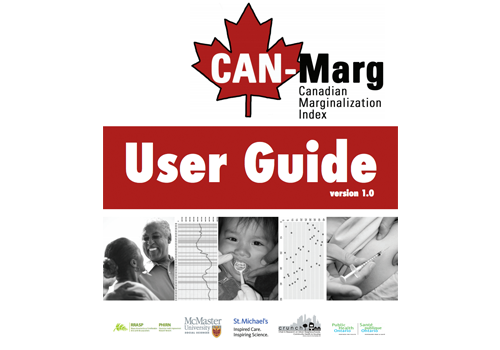Housed at McMaster University, CRUNCH is dedicated to examining the complex interactions between housing, neighbourhoods and health.
Along with our partners in government, the charitable and nonprofit sectors, community groups, and industry, we collaborate on a number of studies that seek to understand neighbourhood-level, population-based health and child development their social determinants.
Overview
The Collaboratory for Research on Urban Neighbourhoods, Community Health and Housing (CRUNCH) began as an internationally-unique, five-year chair to examine the complex effects of housing, neighbourhood-level, population-based interventions on health and its determinants, particularly for children. The Chair is funded until 2014 by the Canadian Institutes of Health Research and the Public Health Agency of Canada.
The Collaboratory is an extension of the Chair’s activities, and will enable continuing innovation in neighbourhoods housing and health research, operating under Dr. Dunn’s supervision.
Since 2009, the research program has reviewed existing evidence on the health effects of neighbourhood interventions from Canada and other countries, developed and refined methods to investigate the effects of neighbourhood interventions on health, and conducted an ambitious program of primary research evaluating the health effects of housing and neighbourhood interventions.
CRUNCH provides:
- Leadership in the development of a knowledge base for action;
- Facilities for innovative research, including software and hardware for surveys, and equipment for video-based neighbourhood research
- Training and mentoring for current and future practitioners of neighbourhood-based intervention research; and
- Knowledge mobilization for effective use by decision-makers, practitioners and the community.
The central focus of CRUNCH is understanding how complex, population-based interventions focusing on urban residential neighbourhoods may have positive effects on the health of residents. We believe that successfully applying interventions across contexts requires an understanding of how interventions work, for whom and under what conditions, not simply if they work.
Click here to download a two-page summary (.pdf format) describing CRUNCH and its facilities.
The Poverty and Employment Precarity in Southern Ontario (PEPSO) research project is a joint university-community initiative led by United Way Toronto & York Region and McMaster University.
This initiative is a partnership of over 30 university, community sector, labour, government and media partners. Starting in 2010, the goal of the PEPSO project has been to meet the research need of data on trends in precarious employment and to encourage policy debate and further research. PEPSO has successfully met these goals in multiple areas by garnering significant media coverage, influencing and impacting key policy decisions, expanding existing knowledge and serving as a foundation for further research.

CRUNCH uses five strategies to ensure that policy makers, service providers, fellow researchers and the various communities with a stake in a study are engaged in the research process and able to understand and effectively use the findings.
Five Strategies:
- Involve decision-makers, service providers and the community in the development of research questions and design.This substantially improves the relevance of research for potential users and has also been successful in assuring community members that the research team is genuinely concerned with the welfare of the communities.
- Form an advisory committee with membership from key groups and use it at key points in the research. Members are partner agencies, policy makers at the provincial and federal levels and tenant representatives. The advisory committee has helped develop research questions and strategies and will contribute to the interpretation and sharing of results.
- Use the Chair’s Knowledge Translation Council to share findings and recruit new partners on projects. Nearly all of the organizations represented on the Knowledge Translation Council are already partnering with Dr. Dunn on research projects, either as a funder, a decision-making stakeholder or as a knowledge translation partner.
- Conduct formal workshops on knowledge translation and population-based evaluation. This strategy is designed to reach decision-makers and service providers outside of Toronto. Workshops will be held in Toronto and in other cities across Ontario and Canada. Examples include the Centre for Research on Inner City Health’s annual summer school in urban health research, the Canadian Public Health Association conference and meetings held by provincial public health associations.
- Enhance the practice of knowledge translation related to housing and health. The Li Ka Shing Knowledge Institute at St. Michael's Hospital in Toronto focuses on innovative approaches to ‘bench to bedside’ knowledge translation. Through CRUNCH, the Institute is encouraged to broaden its target audience to include those stakeholders who are involved in housing, urban planning, social services and children's services, but not directly involved in health care. CRUNCH also helps the Institute to integrate knowledge drawn from laboratory, clinical and community studies and apply it to neighbourhood interventions.